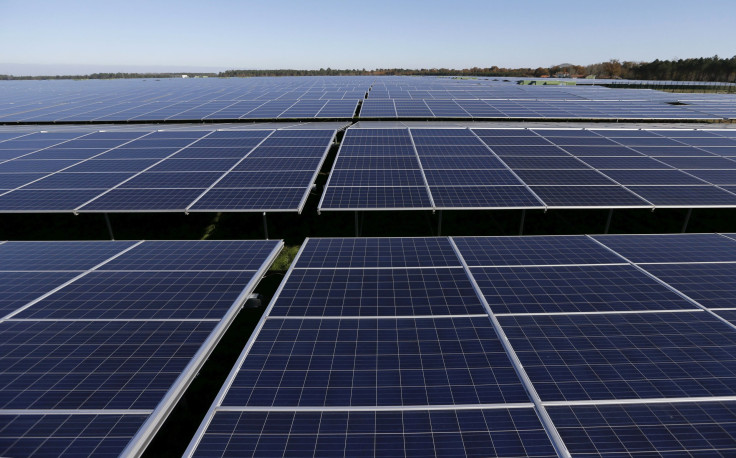Green Bonds May Still Save The Climate, But Low Oil Prices Could Hurt Clean Tech

There is now “a business and moral imperative” to invest in clean and renewable energy sources, and green bonds may pave the way for such investments, panelists at a debate at the ongoing World Economic Forum (WEF) summit in Davos, Switzerland, said Wednesday.
However, if global oil prices continue to languish at current lows, or if they dip further, it may scare off risk-averse investors from alternative energy sources, the panelists, including Christiana Figueres, executive secretary of the United Nations Framework Convention on Climate Change, warned.
“We are definitely moving in the right direction, but we are not moving fast enough,” Figueres said, when asked about the long-term impact of last month’s landmark climate summit held in Paris. “The big question is how do we de-risk the capital flows that go into green investments?”
At the climate change summit in Paris last month, leaders from across the globe announced several clean energy initiatives. The summit, after nearly two weeks of fraught negotiations, also ratified a deal that seeks to curb the increase in global average temperatures to “well below” 2 degrees Celsius (3.6 degrees Fahrenheit) above preindustrial levels.
However, even though scaling up investments in clean energy sources, including wind and solar energy, is the most straightforward way to achieve this goal, investors may be unwilling to bet on these as low oil prices render alternative energy sources costly and unattractive.
Brent crude, the international energy benchmark, is currently selling at $28.26 a barrel — down more than 60 percent since June 2014 — as a lack of robust demand, coupled with a massive global glut, continues to weigh on prices.
“Low oil prices are definitely not helping renewable energy,” Feike Sijbesma, CEO of Royal DSM, a Dutch life sciences and materials sciences company, said, during the debate. “The time is now right to put a price on carbon emissions.”
Moreover, low oil prices may also impact investments in green bonds, which are issued by international lenders, companies and governments to raise funds for clean energy investments, the panelists concurred.
“In the beginning, there are always pockets of dislocation. Investors want higher returns than what is available,” Stuart Gulliver, the group chief executive of HSBC, said, during the debate. “There are high risks in innovative technology. Some of the stuff just won’t work. That’s the capitalist model.”
However, despite the prevailing headwinds renewable energy investments face, a record $41.8 billion worth of green bonds were issued across the world in 2015 — an increase of 13 percent over 2014. The slump in oil prices has also spared renewables such as solar and wind, which attracted a record $329.3 billion of investment last year.
While cheap oil is yet to impact solar and wind energy investments, it has begun taking a toll on the electric car market. For instance, in the United States last year, sales of sport utility vehicles and pickup trucks skyrocketed, while sales of electric cars, by contrast, stagnated.
“There is no need to demonize fossil fuel companies,” Figueres said. “But it is very clear that oil and gas industries have to play a part. They have to figure out which investments are completely untenable and need to be off the table.”
© Copyright IBTimes 2024. All rights reserved.






















